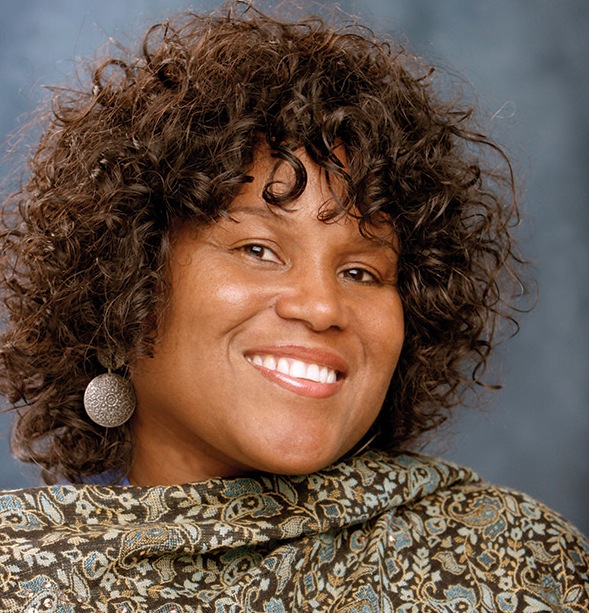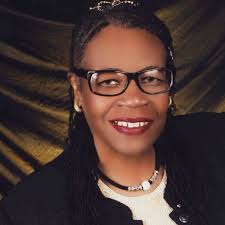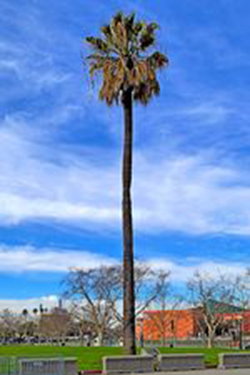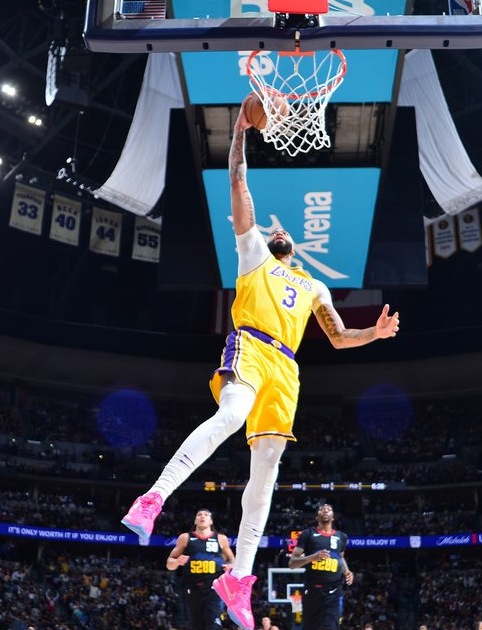By Darlene Donloe
Contributing Writer
When Sandra Evers-Manly was a little girl, she would often complain to her mother that she didn’t see people who looked like her on television or in the movies.
“I didn’t see enough diversity in the camera or behind the scenes,” Evers-Manly said. “I questioned the images I saw or didn’t see of Black people in America. I wanted to bring in some diversity. My mother told me to do something about it. She said, ‘change it.’ So I did.”
Today, the always upbeat and always positive Evers-Manly has done just that as the founder and president of the Black Hollywood Education and Resource Center.
The organization is currently gearing up for its 28th annual African American Film Marketplace & S.E. Manly Short Film Showcase set to take place over two weekends beginning Aug. 19-21 and Aug. 26-28, with virtual film access available Aug. 19-28 at www.bherctv.
The screenings will take place at the Cinemark 18 & XD at Howard Hughes LA, located at 6801 Civic Center Drive.

The festival presents a combination of documentaries and short films in the length of 60 minutes or less, featuring multiple filmmakers representing diverse voices and storytelling.
“Our mission is to celebrate the brilliance of Black filmmakers by supporting emerging storytellers,” said Evers-Manly, a graduate of USC. “The short film format is an excellent way for independent and emerging filmmakers to tell Black stories and offer viable ways to excel in their careers. We are honored to support these artists.”
The Black Hollywood Education and Resource Center, a nonprofit founded in 1996, is a public benefit organization designed to advocate, educate, research, develop and preserve the history and future of Blacks in film and television.
Evers-Manly, developer of an animated series (“Imani: the Super Little Engineer”) and children’s book author (“Raised Up By Mrs. Manly & Her L’s”), said when she started the organization her hope was to make a difference.
“I’ve been at this since 1978,” said Evers-Manly whose favorite films include “Imitation of Life,” “Cooley High,” “Love and Basketball” and “Black Panther.” “I decided to be an activist and bring about change in Hollywood. I thought starting a festival and providing grants to Black filmmakers was what I wanted and needed to be doing.”
Since then, the organization has launched several film festivals including Sistas Are Doin’ It For Themselves, Reel Black Men, First Weekend Club, Doin’ It The Independent Way Film Showcase, Faith-Based & Inspirational Film Festival, Youth Diversity Film Festival, and the Black Hollywood Education and Resource Center Festival @ Sea.
This year’s festival, featuring about 111 films from around the globe, has several highlights. On Aug. 19, the organization will present the opening night reception and awards gala: “A Great Day in Black Hollywood” honoring people behind the scenes.
This year’s honorees include Beverly White (award-winning journalist NBC4), Ketty Lester (Grammy nominee and actress), Gil Robertson IV (president of the African American Film Critics Association), and the Creative Coalition of Color. The event will be held at the Nate Holden Performing Arts Center, 4718 W. Washington Blvd.
On Aug. 27, a new initiative, a special block of eight films, and a panel discussion focusing on Mental Health & Film, will take place. Aug. 28 offfers Youth Day: Screenwriting for Short Films and Special Youth Films.
I recently caught up with Evers-Manly, who recently retired from Northrup Grumman after a 40-year career as vice president for global corporate responsibility, to talk about the upcoming African American Film Marketplace & S.E. Manly Short Film Showcase and her career.
During the conversation, Evers-Manly, who recently became a member of the Academy of Motion Picture Arts and Sciences, couldn’t hide her enthusiasm for what she does, even though she’s been doing it for three decades.
DD: Does it seem like you’ve been doing this for 28 years?
SEM: No. Actually, it’s literally been 30. Next year is the 30-year anniversary of “Sistas Are Doin It For Themselves.” The African American Film Marketplace came after ‘Sistas.’
DD: After 28 years, how do you keep the marketplace fresh and relevant?
SEM: By trying to understand where we are as a people as it relates to our stories. We still have work to do. Making sure we are focused on the right things. By providing pathways. We look at what’s going on in society. They don’t want our history told in schools. We have to be deliberate in our storytelling. Our stories are valuable and need to be told.
DD: Why do you think the marketplace has survived 28 years?
SEM: Because of the team effort. There are so many out here doing this work. We are trying to help individual kids in college by providing scholarships. We are trying to really be a vessel to help and provide support and showcases for filmmakers. Providing support has kept us relevant.
DD: Has the vision for the festival changed over the 28 years?
SEM: My initial vision was wanting to see more people who look like me. We’re seeing more stories about the Black family. We are increasing our representation. Has it changed over the years, absolutely it has?
DD: You have numerous film festivals. What is your relationship with film?
SEM: It’s a powerful medium. You can get that instant education and gratification. Film is worldwide. People get their perceptions through films. We are represented as a whole. People can walk away inspired and entertained. As a child, I spent a lot of time in and out of the hospital because of a medical condition. I watched a lot of TV. I would always ask, where are we? Our images need to be diverse.
DD: When you look at what you’ve done over 28 years, what do you think?
SEM: I’m proud of a lot of what we’ve accomplished. I see it as a “we.” I’m proud I have people who are focused on this. Proud we are able to help so many filmmakers and be that vessel. There is still work to do. We are in the race. It’s a marathon, not a sprint.
DD: Tell me about Films With A Purpose.
SEM: It’s something I’m very proud of. I set aside money from my salary and I partially fund four films with my own money. To me, it’s not enough to just talk about it. I want to educate and bring about awareness. That’s what the films do that come under Films With A Purpose.
DD: You wanted to make a difference because the film industry lacked diversity. It’s been 28 years. Have you seen any real change in the industry?
SEM: I can say any time you see incredible work by Ava (DuVernay), Gina Prince-Bythewood — those are victories for me. Some Black women are leading studios and networks. Stories like Shonda Rhimes, who is doing big things and Jordan Peele’s “Nope” being done — you have to look at that as being a success. There needs to be more. We can’t ignore some of the groundbreaking work. You have to feel great about it.
DD: Do you still question the images you see on the screen?
SEM: There are times you have to definitely question what you see and what you don’t see. It’s a hard industry. We have crossed the finish line but there is still much more work to be done.
Tickets for the 28th Annual African American Film Marketplace are $25 for a two-hour block of films, $20 for students and seniors. Tickets for A Great Day in Black Hollywood are $60, $50 for students and seniors. A festival pass is $300 for two weeks or to watch virtually. Tickets are $30 virtually for all of the films. A day pass is $75.
For more information and a complete festival schedule visit, www.bherc.org.
“The Q&A” is a feature of Wave Newspapers asking provocative or engaging questions of some of L.A.’s most popular newsmakers or celebrities.
Darlene Donloe is a freelance reporter for Wave Newspapers who covers South Los Angeles. She can be reached at ddonloe@gmail.com.












